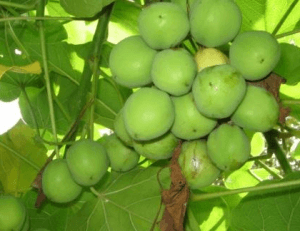Scanfuel’s Ghana Jatropha plantation wipes out settlements, farms
 An ominous cloud of uncertainty gathers around a Jatropha project in Ghana.
An ominous cloud of uncertainty gathers around a Jatropha project in Ghana.
A Norwegian company, Scanfuel is operating what is currently noted to be the largest Jatropha plantation in Ghana.
The company through its Ghana subsidiary, Scanfuel Ghana Ltd., has acquired 400,000 hectares of land in the Asante Akim North Municipality of the Ashanti Region to plant Jatropha for the production of biodiesel for export.
But a visit by ghanabusinessnews.com and the International Correspondent of the European Energy Review to the farms and surrounding villages revealed an enterprise operating with impunity and disregard for local people, their way of life and local laws.
According to the Chief of Efirise, one of the settler farmer communities within the operation area of Scanfuel, Amadu Zakari, the company acquired the land from the paramount chief of Agogo, Nana Akuoku Sarpong. He added that Scanfuel subsequently offered to pay GH¢1 per acre of land to the farmers whose land it was taking over.
According to Zakari, most farmers rejected the offer because the amount was seen as paltry. Scanfuel, however is going ahead with its project, planting and harvesting the Jatropha seeds for processing and expanding by the day.
Local people are worried but scared, as they believe there are powerful hands behind Scanfuel.
Scanfuel uses heavy agric machinery to clear everything in its way including human settlements, crop farms and economic trees.
A walk around the farm revealed Dawadawa and shea trees that have been cut down. The Dawadawa tree serves as an essential food and medicinal plant for the local people. The shea tree, apart from serving as food, also has huge economic potentials for local people. The importance of the shea tree is seen in the government of Ghana’s inclusion of the shea nut in its major development programme for the northern part of the country.
The shea tree once it has survived the first five years of its early stages of germination and growth, grows slowly and takes about 30 years to reach maturity and from here, it can live for up to three hundred years and can bear fruit for two hundred years. It has food, medicinal and export value to local people.
The Municipal Chief Executive of the Asante Akim North Municipal Assembly, Thomas Osei-Bonsu in an interview told ghanabusinessnews.com that Scanfuel Ghana Ltd., is not registered with the local authority. He indicated that the entrance of Scanfuel into the area was facilitated by deceit.
“The farmers were misinformed at the beginning of the project,” he said. According to him, the farmers were told they were going to be engaged as outgrowers for Scanfuel but were not told they were going to lose their lands, but as it turned out, their arable lands have been taken away from them.
Even as political head of the area, he said “no one knows what compensation Scanfuel paid for acquiring all that land.”
All the fertile lands of the people of Efirise, Dukuse, Bamala, Brentuo, Enso Nyame ye and surrounding villages have been taken over by Scanfuel and the people are left with nothing, but fear, uncertainty and offers of jobs on the plantation at a daily wage of GH¢3.
Some local people have rejected the offer and are waiting in vain to see what will happen. Scanfuel has employed about 200 people who are currently working on the plantation.
“Scanfuel is opening itself up for litigation,” Osei-Bonsu warned.
On occasions when he had called Scanfuel officials to discuss the issues and find a solution, the company has not responded to his calls, but continues to expand, he told ghanabusinesnews.com.
Officials of Scanfuel at the company’s Agogo office declined to talk to journalists when we called on them Monday February 15, 2010.
By Emmanuel K. Dogbevi

400,000 seems a bit on the high side. That is quite a large piece of land. Check ur facts please
Jatropha is a poor choice of species to introduce to Ghana and even a poorer choice as a business. Jatropha is a highly invasive and will spead in the region if not controlled. The plant is toxic. Workers that is in contact the the plant is exposed to a possible health risk. I hope health related aspects are controlled and mitigated.
Total clearing of land in the area in question is a bad choice as soil is exposed to rain and without good ground cover will erode. That means the top layer of the land will be lost and the value of the soil damaged. Scientically it is not known what the impact of Jatropha is on soils, but the plant is continuesly fruiting, meaning the nutiants need to come from somewhere, and that somewhere is the soil.
Why not check on the company’s terms set out in its EIA, the EPA can surely do that, and the document is public. Is it not easy to verify the company’s conformance using the measures and laws in place in Ghana?
Check if the company is up to date with land rent and its agreements. These are the issues you can control, dont waste your time on hype…hype created Jatropha….and that we know is not a good thing.
WE ARE COMING TO GHANA NEXT WEEK AND WANT TO MEET PEOPLE OR COMPANYS IN A POSITION TO EXPORT JATROPHA OIL OR BIODIESEL IN YOUR COUNTRY, PLEASE, LET US KNOW INFO ABOUT THIS AND WE´LL BE VERY PLEASED TO VISIT YOUR COUNTRY AND SEE ALL POSIBILITIES TO INVEST THERE.
REGARDS, DR. COSTA